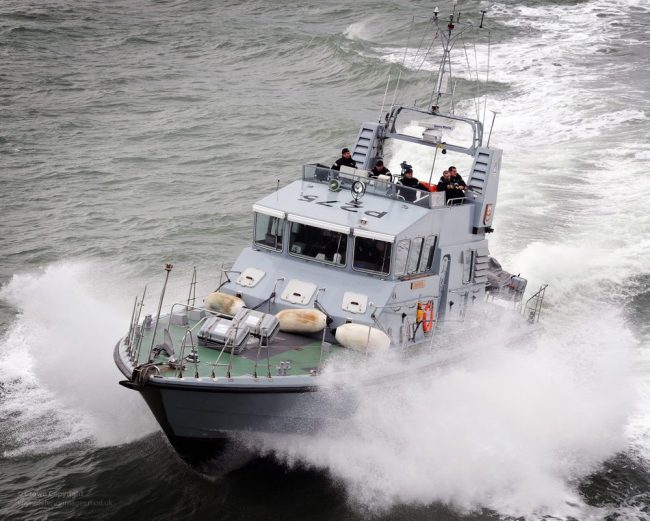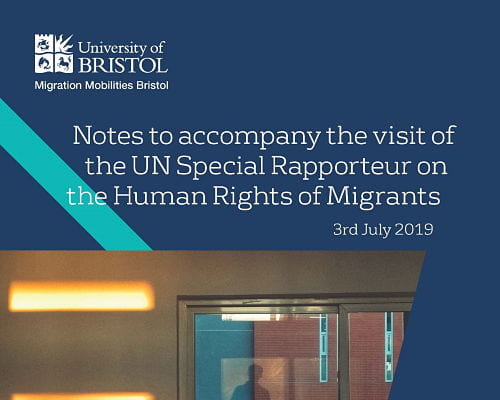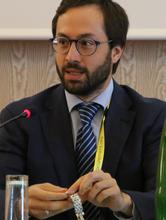The UK didn’t need the EU to enjoy multiculturalism – quite the reverse
Tag Archives: migration
Sending in the Royal Navy is not the answer to small boat migration in the Channel
This blog post was written by Timothy Edmunds, Professor of International Security, University of Bristol and Dr Scott Edwards, Research Associate, Translational Organised Crime at Sea, University of Bristol.
The Home Office has announced a plan to bring in the Royal Navy to take charge of policing the English Channel after the number of migrants attempting the crossing in small boats tripled in 2021. Full details of the plan have not been revealed, but appear to involve the navy taking a leadership and planning role, as well as possibly providing additional vessels to augment the Border Force cutters already at sea.
Certainly, at first glance, the navy has the potential to bring more resources to the problem. Border Force currently operates five cutters and six coastal patrol vessels, whereas the navy has many more ships suited to maritime security tasks. These include 16 Archer class patrol vessels and eight of the larger and more capable River class offshore patrol vessels.
Yet numbers can be deceiving. The Archers and Rivers are already in high demand. Two of the Rivers, HMS Tamar and HMS Spey, are forward deployed to the Indo-Pacific. Others are assigned to areas of longstanding UK interest, such as the Caribbean and the Falklands, or now patrol the UK’s fishing waters following Brexit. Likewise, two of the Archers are deployed to the Gibraltar Squadron, another two assigned to security duties at the Faslane nuclear submarine base in Scotland, while the others play important roles with University Royal Naval Units.
With so many vessels already in use elsewhere, it seems unlikely that the Admiralty will welcome new deployments to the Channel -– especially so soon after an announcement that Border Force is receiving money for an upgraded fleet of cutters.

P2000 Archer Class Patrol Vessel HMS Raider, LA(Phot) Martin Carney, Flickr
The freedom to love: Mixed-immigration status couples and the immigration system
This blog post was written by Dr Candice Morgan-Glendinning, University of Exeter & Dr Melanie Griffiths, University of Birmingham. Their report from the Deportability and the Family project was launched in June 2021. You can download the project report, Policy Bristol policy briefings and other outputs from the webpage.
“If you are a British citizen then falling in love with someone who is not British isn’t allowed to happen basically.”
In the last decade, a series of changes to immigration policy have significantly affected the family lives of people living in and coming to the UK. These have restricted not only the private lives of immigrants but also thousands of British citizens, with implications for their wellbeing, prosperity and sense of national identity.
Shifting policy
A wide spectrum of changes to family migration rules were introduced in July 2012. This included dramatic increases to the minimum income required by Britons seeking to bring a foreign spouse to the UK, to a figure well above the minimum wage. There were also changes to the entry requirements for family members and lengthened probationary periods, as well as increased – but unevidenced – suspicion over so-called ‘sham marriages’.
As well as affecting the arrival and settlement of foreign family members, concurrent policy changes have curtailed the relationships of people already in the UK. In particular, Article 8 of the European Convention on Human Rights (the right to respect for one’s private and family life) became considered increasingly controversial and suspect. The response has been to make drastic changes to the interpretation of Article 8 and the threshold needing to be met by families, particularly in removal and deportation cases.
MMB hosts the UN Special Rapporteur on the Human Rights of Migrants

By Diego Acosta, Bridget Anderson and Lindsey Pike
On 3 July 2019, the UN Special Rapporteur on the Human Rights of Migrants, Professor Felipe González, visited the University of Bristol. The event was organized by Migration Mobilities Bristol (MMB) with funding from PolicyBristol. Here we outline the scope of his work and focus of his visit. Continue reading
Climate change: sea level rise could displace millions of people within two generations

Michael Bamber, Author provided
Jonathan Bamber, University of Bristol and Michael Oppenheimer, Princeton University
Antarctica is further from civilisation than any other place on Earth. The Greenland ice sheet is closer to home but around one tenth the size of its southern sibling. Together, these two ice masses hold enough frozen water to raise global mean sea level by 65 metres if they were to suddenly melt. But how likely is this to happen? Continue reading
Brexit and migration: our new research highlights fact-free news coverage

Denny Pencheva, University of Bristol
Immigration anxieties played a significant role in British people’s decision in June 2016 to vote to leave the EU. This has fuelled a debate over the quality of media reporting on migration issues. Continue reading
Government must ignore illegal proposals for a pre-Brexit cut-off point limiting the rights of EU nationals in the UK

Dr Albert Sanchez Graells, Senior Lecturer in Law, University of Bristol Law School
In its paper of 13 March 2017 on “The Rights of EU Nationals in the UK Post-Brexit”, Migration Watch UK has put forward a range of proposals aimed at clarifying – and limiting – the rights of EU nationals in the UK in the context of Brexit. These proposals are illegal under EU law and the UK Government must ignore them in their process of shaping the UK’s migration policy towards EU nationals as a result of Brexit. This post summarises these proposals and details the reasons why they are illegal under EU law.
The proposals of the Migration Watch UK paper focus on two main categories of EU nationals: first, those that are residing in the UK at the time of triggering Article 50 Treaty of the European Union (TEU) but will not qualify for permanent residence at the time of Brexit (which the paper assumes to be March 2019) (category (a)). Second, those that will continue to arrive to the UK between the moment in which Article 50 TEU is triggered and the moment when Brexit becomes legally effective (category (b)). Even if the paper is not very clear about it, the proposals would also affect the rights of European Economic Area (EEA) nationals, as well as those of individuals whose residence and work rights derive from those of an EU/EEA national. For simplicity, though, I will stick to the use of the expression “EU nationals” to cover all of them. Continue reading
Sharing stories of migration and belonging

Dr Devyani Prabhat, Lecturer in Law, School of Law
Last month I led an ESRC Funded Thinking Futures Event on Migration and Belonging at the St Werburgh’s Community Centre, Bristol. The event was attended by twenty-six people who had experience of applying for British citizenship or had personal stories to share about migration. Storytelling gives a direct voice to research participants and this was the theme of the event. Artist Sam Church who is a graphic artist simultaneously sketched the stories which were being shared. Continue reading
Marriage migration and integration

Katharine Charsley is a Senior Lecturer at the School of Sociology, Politics and International Studies
Around a quarter of British Indian Sikhs, and half of British Pakistani Muslims have a spouse who migrated to the UK as an adult, making these two of the largest British ethnic groups involved in this kind of transnational marriage.
In recent years, such marriages have increasingly been seen as an obstacle to integration – with suggested implications ranging from poverty to lack of attachment to the UK, and persistent gender inequality. In Britain, as in some other European countries, the demands of integration now also feature in justification for restrictions on spousal immigration, such as the income requirement for sponsors introduced in 2012.
It is surprising to many to learn that the empirical research on relationships between marriage migration and integration has actually been rather limited, and has produced varying results.
Government reaction to the refugee crisis: humanitarian response or political opportunism?

Ann Singleton, Senior Research Fellow, University of Bristol and currently on secondment to the Global Migration Data Analysis Centre (GMDAC), Berlin

Dr Monish Bhatia, Abertay University
Recently the public and media became aware, through one image across Europe (and the world) of the plight of people fleeing for their lives. Within the UK this image produced an awakening after months and years of warnings about the consequences of policy failures, wars and discrimination against migrants. Evidence of the catastrophic failures of UK and EU migration policies, which are based solely on immigration control, borders and ‘security’, have been disbelieved or treated with scepticism by policy makers, officials and many academics.
Repeated reports of deaths in the Mediterranean were ignored or seen as someone else’s problem, the public having been fed a relentless ‘diet’ of poisonous ‘news‘ and rhetoric about migration in general. Institutional racism and discrimination was further embedded as asylum seekers (including children) in the UK were detained, portrayed as troublesome, instead of being welcomed and offered protection. Furthermore, the consequences of austerity are continuously blamed on migrants.
There is a crisis of democracy, as well as policy and a humanitarian crisis, which has been fuelled by the action and inaction of our government.

